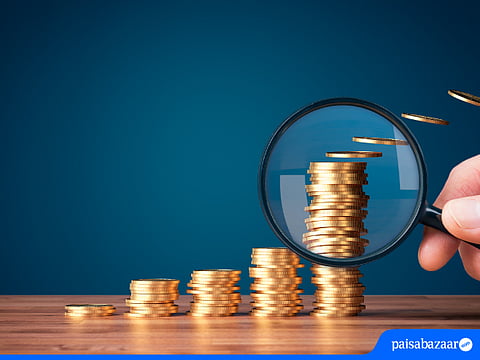
- News
- Women
- Magazine
- IndustryIndustry
- InsightsInsights
- Success Stories
- PublishPublish
- ContactContact
- Media KitMedia Kit

Should you start saving or pay off your debt first?
Should you start saving or pay off your debt first?
When it comes to applying for a loan or credit card, we usually focus on comparing multiple options to find the best deal. Platforms like Paisabazaar make it easy to compare loans and cards from multiple lenders and allow us to opt for the most viable option.
However, when it comes to paying off debts or saving money, we usually end up getting confused about which side to choose.
Should we save our surplus cash or should we put it towards debt repayment? The answer to this question depends on whether you have enough savings or how much high-interest debt you have.
In some cases, you can save and pay off your debt at the same time. While there is no perfect answer to this question, here are a few scenarios that can help you decide what to do when you’re juggling between savings and debts.
You may want to pay your debts as soon as possible, but it is important to prioritize emergency savings. You can start by saving a small amount, which you can use in case of unexpected situations.
A sudden medical emergency or losing your job can take a toll on your financial plans. Hence, it is important to create an emergency fund to save yourself from a huge financial crisis.
If you do not have an emergency fund, you may want to pay for your emergencies through your credit card or want to take another loan, but this will only compound your debt and make your problems worse.
It is a good practice to have your six months’ worth of expenses saved in an emergency fund. But, this may not be realistic especially if you are struggling financially to pay off your debts.
So, if you are having difficulty creating an emergency fund worth six months of expenses, you can aim to save three months’ worth of expenses. It is good to have at least some money instead of nothing for your emergencies.
If you are finding it difficult to save money for your emergency fund, you can start by saving a small portion of your monthly salary. Besides, you can always start focusing on building an emergency fund again once you’ve lowered your debt.
To begin with your emergency fund, you can open a high-interest savings account so that you can grow your money while saving it.
However, while focusing on your savings, it is also important to make timely payments on your debts to save yourself from late fees and high interest charges, which can harm your credit score.
Once you’ve got your hands on basic savings, you should start focusing on paying off your debts, especially high-interest debt like credit cards.
It is important to plan a debt repayment strategy to pay off your debts smartly without doing much harm to your financial health. The debt repayment strategy depends on the types of debts you have.
For instance, if you have an education loan, you may be able to request your loan provider to extend the grace period. However, in the case of credit card debt, these kinds of solutions are not possible, as they come with high-interest charges.
Which Debt to Pay Off First?
To get out of debt, you need to understand which debt you should pay off first. For this, you can follow any of these two strategies based on your needs:
· You can start listing your debts by total amount and pay off the smallest ones first. This way, you can save and pay off your debt at the same time.
This is suitable for those who prefer to pay off the debt in smaller amounts to slowly lessen the overall burden of debt. However, this strategy might not be suitable for everyone.
· You can also create a list of all your debts along with the interest rates charged on them. Under this strategy, you can start paying off your debts that charge a high interest rate.
This is particularly helpful if you have more high-interest debts like credit card dues as you can first save yourself from high-interest charges and then focus on paying other debts with lower interest rates.
Despite the strategy you choose, you should always try to pay more than the minimum due every time you pay off your debt. Also, try to use unexpected money like a bonus to pay off your debts.
Once your debt is under control, you can turn up to increase your savings. One of the problems with most of us is that our debts are so significant as compared to our income that it takes years to pay off the entire debt and create a balance.
It might be appealing to pay off your debts by keeping your savings aside, but this isn’t a realistic option. You should try to find a balance that works best for you to manage your savings and debts.
You can start by paying off significant debt while making small contributions to your savings. Once you’re free from your debts, you can boost your savings by contributing more to your emergency fund.
Overall, there is no perfect answer to this question, the choice between paying off debts or savings depends on what works best for you. So, instead of focusing only on one thing, you have to balance the importance of an emergency fund while paying off your debts.
Follow us on Google News
